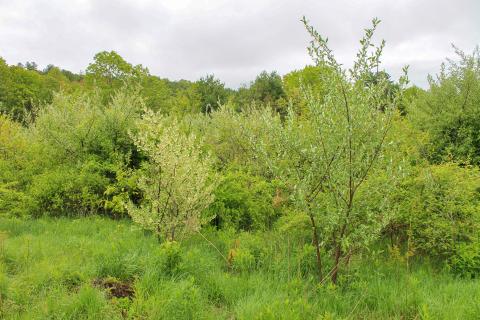Garland Road
Rye, NH 03870
United States
Fields, shrubby old-fields, hedgerows and field edges can provide unique habitat for many species of vertebrate and invertebrate wildlife. The specific wildlife that use these habitats on your land is determined by many factors that you can influence with careful management.
In this outdoor workshop, we will visit a beautiful property managed for multiple objectives including aesthetics, hay production, flower diversity to support native pollinators and commercial beehives, and habitat diversity that supports a variety of wildlife. This workshop will provide a great opportunity to get your questions answered and get ideas for ways you can maintain and enhance wildlife habitat on your land!
During this workshop we will discuss and show examples of some of the most important factors influencing what wildlife species use field and old field habitats:
- The importance of habitat size and shape
- When and how frequently to mow fields and field edges
- What’s the ideal proportion and arrangement of woody plants, wildflowers and grasses?
- The importance of vegetation height and density
- If and how invasive plants should be managed to benefit wildlife
We will also discuss the following topics:
- If and how you should add new plants to enhance wildlife habitat
- Common types of tools and equipment used to manage field and old-field habitats
- Financial aid programs available to help landowners steward habitat
This workshop will be led by the following professionals from Extension: Matt Tarr (State Specialist, Wildlife Habitat), Amy Papineau (Landscape & Horticulture Field Specialist), Greg Jordan (Forestry Field Specialist, Rockingham Co.), Linday Watkins (Forestry Field Specialist, Belknap & Strafford Co.) as well as our partners at The Natural Resources Conservation Service (NRCS).
Prior to attending the workshop, participants are encouraged to watch this short presentation that introduces many of the topics we will cover in detail during the workshop. Participants will receive a certificate of attendance for 3 hours of education time. NOTE: there are numerous active commercial beehives in the habitats we will visit.
Cost: Free but registration is required.
Information on the location and parking will be sent to registered participants one week prior to the event.

